July 2024
First cohort of Nursing Associate apprentices celebrate completion
- About us
- News and Insights
- First cohort of Nursing Associate apprentices celebrate completion

Read time: approx 1 mins
The first group of Nursing Associate FdSc apprentices have finished on a high, with an afternoon tea event celebrating the end of their apprenticeship alongside employer partners and lecturers.
The apprenticeship was first introduced in the healthcare and care workforce to boost the capacity of the nursing workforce and bridge the gap between healthcare assistants and graduate nurses. Their role within the sector will be essential in addressing the NHS Longterm Workforce Plan, a recruitment drive by the NHS to improve patient care, that aims to have 22% of all clinical staff trained through apprenticeship routes by 2031/32.
Working in conjunction with partners such as University Hospitals Birmingham, University College Birmingham’s two year foundation degree apprenticeship combines training on campus with placements within the workplace. This includes training within the University’s state-of-the-art health skills simulation suite, complete with a six-bed hospital ward and realistic breathing, blinking simulation mannikins.

"You get to have a lot of good experience, and comparing it to the traditional route into nursing, you end up qualifying with a significant amount more practical experience."
Reece Jones Nursing Associate FdSc
Approved by the Nursing and Midwifery Council (NMC), apprentices can formally register as a statutorily regulated Nursing Associate on completion.
Aimee Morgan, Senior Lecturer and Programme Lead - Nursing Associate Apprenticeships, said: “The first cohort of Nursing Associate Apprentices has successfully completed their programme, marking a significant milestone in apprenticeship healthcare education. Their journey, filled with dedication and resilience, has equipped them with essential skills to support our healthcare system. We celebrate their achievements and are hopeful for their bright future, confident that they will make impactful contributions to patient care and the nursing profession.”
Nursing Associates work in the public, independent and voluntary sectors, providing care and support to service users within a variety of settings and users, families and carers. They also carry out their duties with an extensive range of health and care professionals and other agencies including social services, police, probation, prisons, housing, education, language interpreters and third sector agencies.
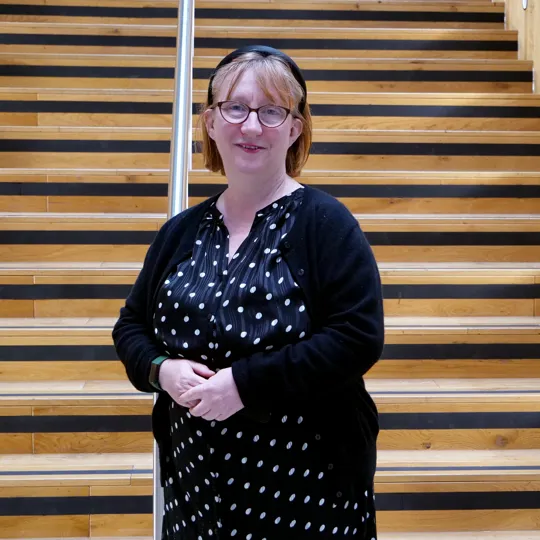
Sarah's story
Sarah Townsend is a mature learner within the first cohort of Nursing Associate apprentices. Here she talks about her journey on the programme and her top advice for other mature learners considering an apprenticeship.
"I'd always worked in the medical environment where I worked as a medical assistant. I always wanted to do nursing but didn't think I was smart enough.
But the University has been absolutely great. They turned around to me and said, ‘We can can do this!” and the apprenticeship was a way of doing that.
I’ve been doing my placement in critical care at the Queen Elizabeth Hospital, which is renowned for its care and excellency, and actually within critical care, we've got lots of different specialities. So, I've been lucky enough to have cardiothoracic as my area of expertise!
There are times when it's been absolutely heartbreaking. It's been tiring and it's been mentally exhausting. But you know, it's been it's been really, really exciting at the same time.
I was quite old when I started the apprenticeship, I was in my 50s – you know, I did O Levels at school and they don’t exist anymore! I started the apprenticeship and it worked really well because it was more hands-on, so I managed to learn on the job, which made life a lot easier for me. I got paid so I didn't have to worry about getting into debt as well, so that was a big draw for me.
I was concerned about age gaps, because a lot my colleagues were a lot younger, and how I would feel, but the University have really embraced it. I’ve had quite a few tears and a little ups and downs, and wondered ‘could I do this’ and each corner, each time I've had a bit of a wobble, the University has said ‘let’s find a way around this’, so they've been really good here.
There will always be someone that you will gel with. When I used to hear the phrase ‘Age is just a number’, before I would always think ‘it's just a cliché’ but actually age really is just a number. And actually, your experience, your life experience does make a big difference because you have so much wealth that you don't realise you have, and that expertise comes up."
In pictures: The afternoon tea event for the first cohort of Nursing Associate FdSc
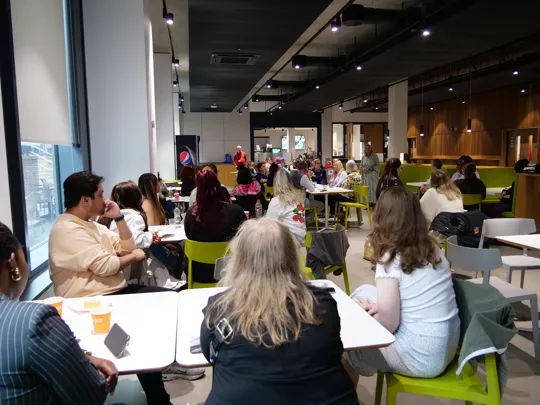
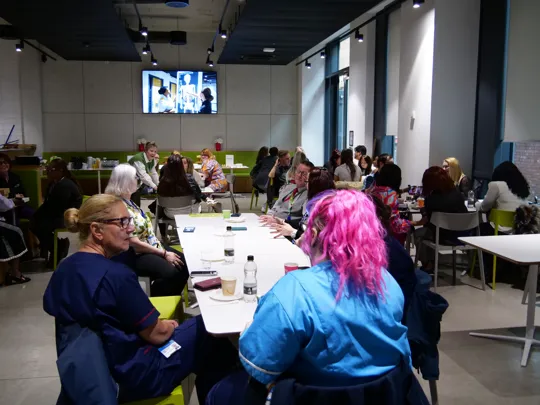
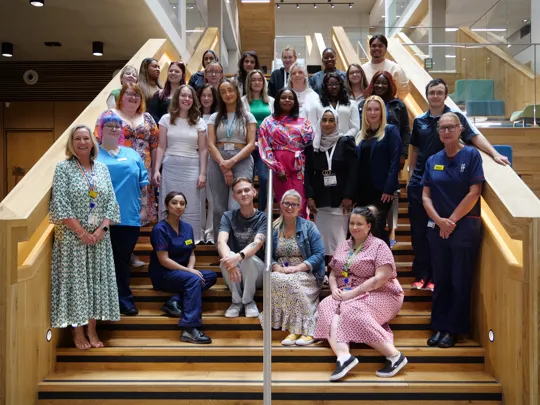

Nursing Associates contribute to the promotion of health, health protection and the prevention of ill health by empowering people and communities to exercise choice, take control of their own health decisions and behaviours and by supporting people to manage their own care where possible.
They work in the context of continual change, challenging environments, different models of care delivery, shifting demographics, innovation and rapidly evolving technologies, becoming a key part of the team that meets the integrated health and care needs of patients and service users.
Learn more about our Nursing Associate FdSc course and what an apprenticeship can offer, and discover our other courses in the Department of Health and Nutrition.
Check out our latest news stories

College of Food grad gains prestigious Michelin star for Lichfield restaurant
An acclaimed local restaurant run by a University College Birmingham graduate gains its first Michelin Star.
Read more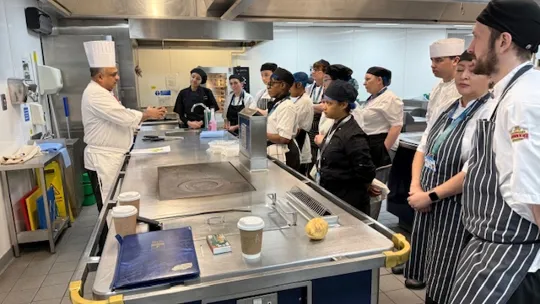

College football team tastes victory in first Midlands tournament
A team of further education students from University College Birmingham have brought home the trophy in the Midlands' first C…
Read more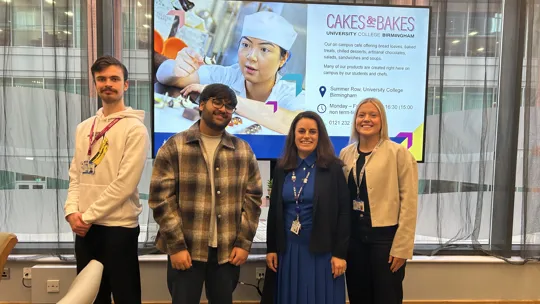
Principal congratulates college students at recognition lunch
Six students were invited to the College’s first-ever Student Recognition Lunch at our award-winning restaurant on campus as part…
Read more
New partnership expands access of award-winning joint pain programme
New partnership gives opportunities for students, as well as providing accredited training.
Read more
University leads the charge towards the UK's battery manufacturing ambitions
Battery Manufacturing Skills Pathway first graduates take their skills and knowledge back into the workplace.
Read more